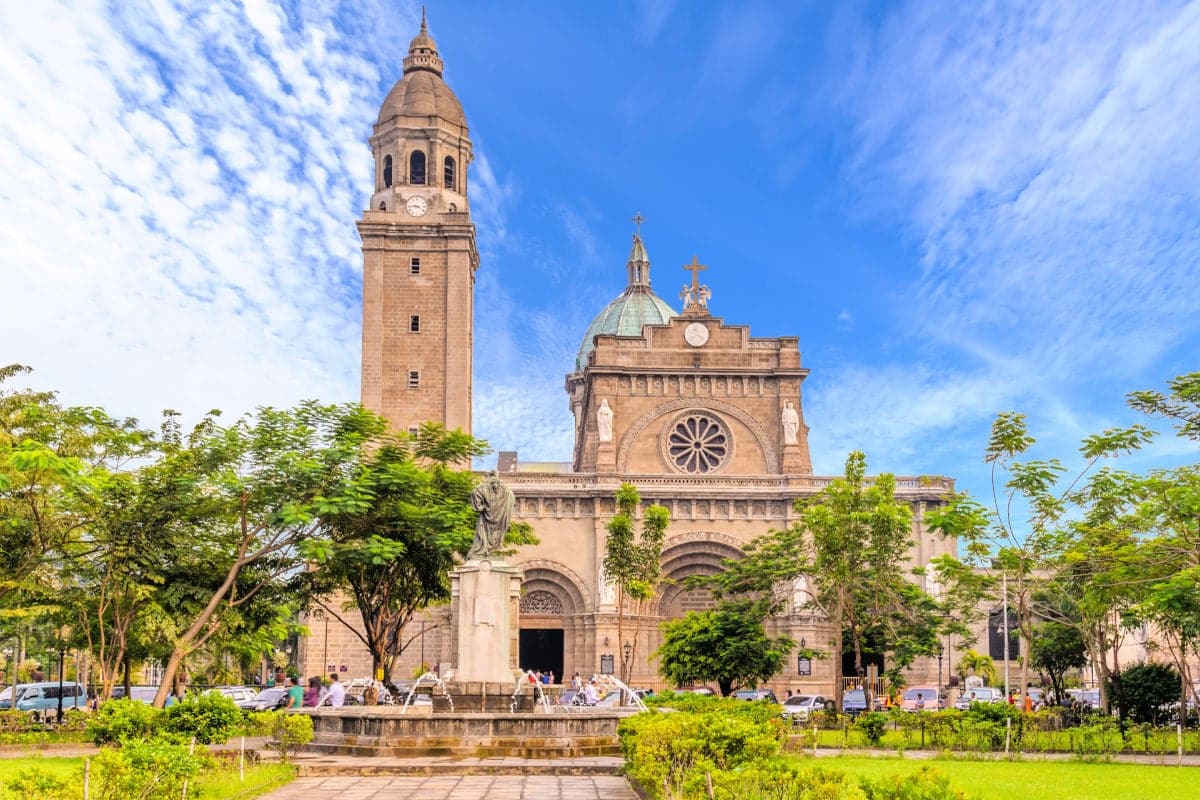Mexico City, Sao Paulo, Valencia, step aside: this lesser-known city in Southeast Asia is the next digital nomad mecca.
Famous for its vibrant culture, year-round warm weather, and friendly locals, Manila, the cultural and financial center of the archipelagic state of the Philippines, has been drawing in a record number of remote workers since the country itself reopened for foreigners.
With such strong offers in the subregion, however, you may be wondering what it is about the once-overlooked Filipino capital that has got nomads so enthralled in the first place:
Manila Is The 7th Fastest-Growing Digital Nomad Hub Worldwide
When talking Southeast Asian (SEA) capitals, Manila is somehow always forgotten as the Phillippines have historically paled in comparison to the far more popular Bangkok or Kuala Lumpur, in terms of expat numbers.
It is one of the least foreign-populated capitals in SEA, and somehow it always fails to get mentioned in travel guides detailing the continent’s most exciting city breaks for digital nomads.

That’s not to say the blatant ignoring and underestimation of Manila is a result of lacking infrastructure or a diverse tourist offer to rival the Thai capital, or Malaysia’s cosmopolitan seaside cities. Quite the contrary.
It may receive little to no promotion in the West, contrary to its immediate neighbors, but it is one of the most fascinating and best-equipped cities country-hoppers could pick as their medium to long-term home, and the proof is in the numbers, as Manila keeps growing as a nomad hub.
According to NomadList, a digital nomad database relying on contributions form over 10,000 members, Manila is the 7th-fastest growing nomad destination of 2023. It surpasses community faves Ljubljana, in Slovenia, Ho Chi Minh City and Hanoi, in Vietnam, which settle for numbers 10, 9, and 8, respectively.

This does not mean Manila is one of the top destinations for nomads globally just yet, but the fact it’s trending, and securing a top 10 spot in the fastest-rising list is an indication of where it’s headed in the near future.
Why Is Manila Suddenly So Popular With Nomads?
Overall, 75% of NomadList respondents have had a positive impression of Manila when working remotely from there, with a majority attributing it an ‘Okay’ Quality of Life score, a ‘Good’ Community Score, and listing affordability as a positive factor.

Overall, nomads in Manila have reported being able to live comfortably on earnings of only $1,543 per month, making it one of the cheapest major cities not only in Southeast Asia but the whole world, especially when expenses elsewhere range between $2,000 and $3,000.
It is also relatively affordable to rent an Airbnb for the long term in Manila, with the average overnight rate ranging from $38 to $57 for a fully-equipped apartment in a central location, while other sources place it at between $293 and $361 for one week.
The cost of food reflects the lower-than-average prices as well, with a meal at an ordinary restaurant costing as little as $4.48, based on Numbeo estimates, while a three-course dinner for two in a mid-range restaurant has a median price of $29.58.

As a digital nomad haven, it is characterized by a plethora of coworking spots and work-friendly cafes, fast and reliable internet across the urban zone, relatively efficient public transportation, and a warmer climate, making it particularly attractive for long-term visitors hailing from the Northern Hemisphere.
In terms of connectivity, Manila is the main transit hub in the Philippines, offering residents nonstop flights and ferry service to many of the country’s paradisaical islands, including Palawan, the up-and-coming sunny hotspot, and other international destinations.
Downsides Of Living In Manila

Today, over 13 million people call Manila’s metropolitan area home, the largest conurbation in the small island of Luzon, making it a rather crowded metropolis.
As a city, Manila has accumulated centuries upon centuries of History, from its early days as a fortified Tagalog port, through the eras of Spanish colonization and direct American rule, and finally as the highly-urbanized capital of the Filipino state.
In the modern era, however, it’s developed into a megacity with a high population density, and it may not be the ideal destination for nomads hoping to slow it down in a more peaceful environment.

Some of the main downsides of living in Manila are the urban pollution, the chaotic traffic, and the overpowering humidity.
Still, walkability is ‘Great’, as assessed by NomadList, and safety, as well as food safety, a primary concern for nomads relocating to Southeast Asia, are both at ‘Good’ levels.
Credit: Source link

